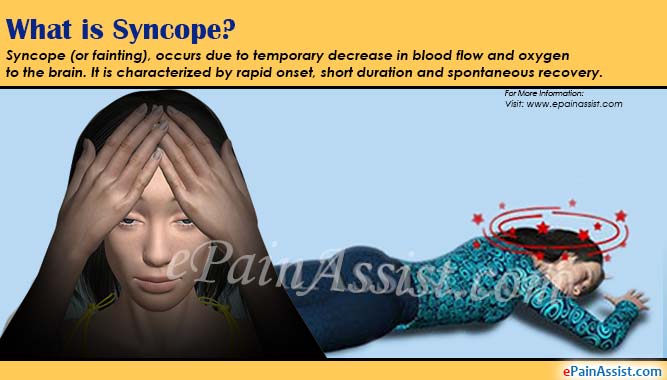What is syncope?
Syncope is a transient, short loss of consciousness that ceases spontaneously. It is due to a sudden and temporary drop in the blood circulation of the brain.
This transient lack of oxygen supply to the brain is enough to cause loss of consciousness and a collapse of muscle tone, causing the person to fall.
Syncope represents 1,21% of emergency room admissions and their cause is then known in 75% of cases.
Diagnostic
To determine that there has been a syncope, the doctor is based on an interview of the person who had a syncope and his entourage, which provides valuable information on the causes of the syncope.
A clinical examination is also carried out by the doctor, as well as possibly an electrocardiogram, even other examinations (electroencephalogram) always to seek to understand the reason of this syncope.
The questioning, clinical examination and additional examinations aim to differentiate true syncope from other types of loss of consciousness linked to intoxication by a drug, a toxic substance, or psychoactive substance (alcohol, drug), to a epileptic seizure, stroke, alcohol poisoning, hypoglycemia, etc.
Cause of syncope
Syncope can have several causes:
- A reflex origin, and it is then essentially a vasovagal syncope. This reflex syncope occurs as a result of stimulation of the vagal nerve, for example due to pain or strong emotion, stress, or fatigue. This stimulation significantly slows the heart rate which can lead to syncope. These are benign syncopes, ceasing on their own.
- Arterial hypotension, which mainly affects the elderly. These are orthostatic syncope (during changes in position, in particular when going from lying down to standing or squatting to standing) or post-meal syncope (after a meal).
- A cardiac origin, related to a disease of the rhythm of the heart or a disease of the heart muscle.
By far the most common is vasovagal syncope. It can concern young people, from adolescence and we often find a triggering factor (intense pain, sharp emotion, anxiety attack). This triggering factor is often the same for the same given person and is frequently preceded by warning signs, which generally makes it possible to avoid a traumatic fall.
This vasovagal syncope also affects the elderly but, in this case, the triggering factors are found much more rarely and the fall is often much more brutal (which can lead to the risk of bone trauma).
True syncope is to be distinguished from other forms of loss of consciousness, for example those linked to an epileptic seizure, a stroke, alcohol intoxication, hypoglycemia, etc. |










